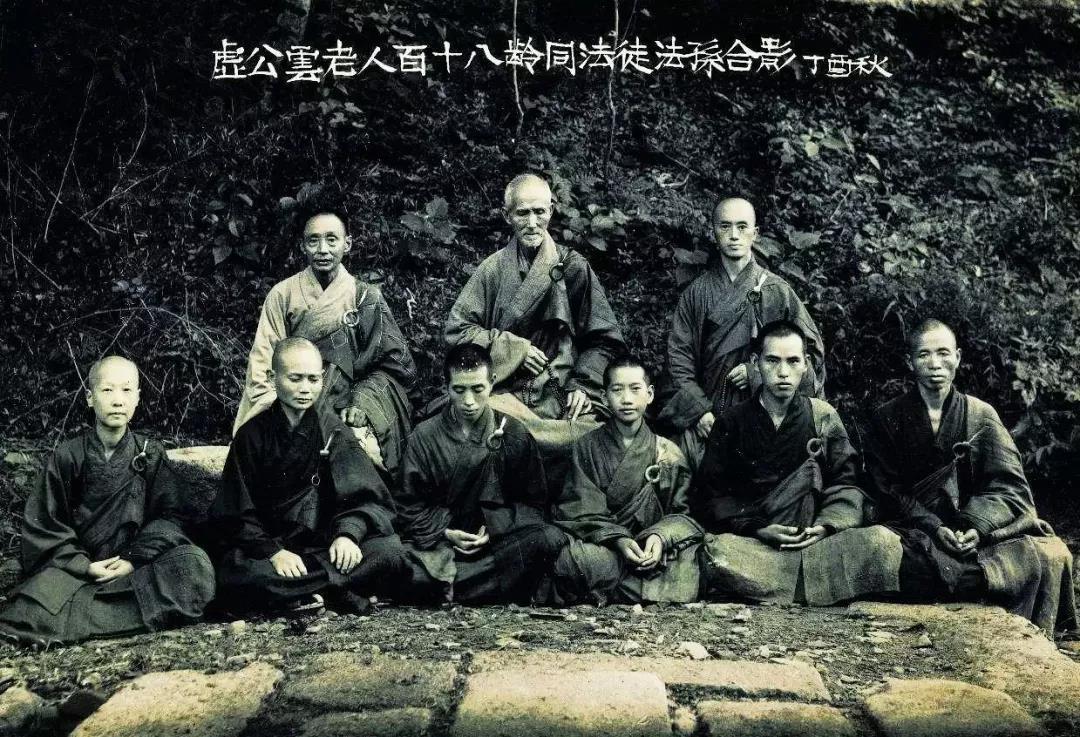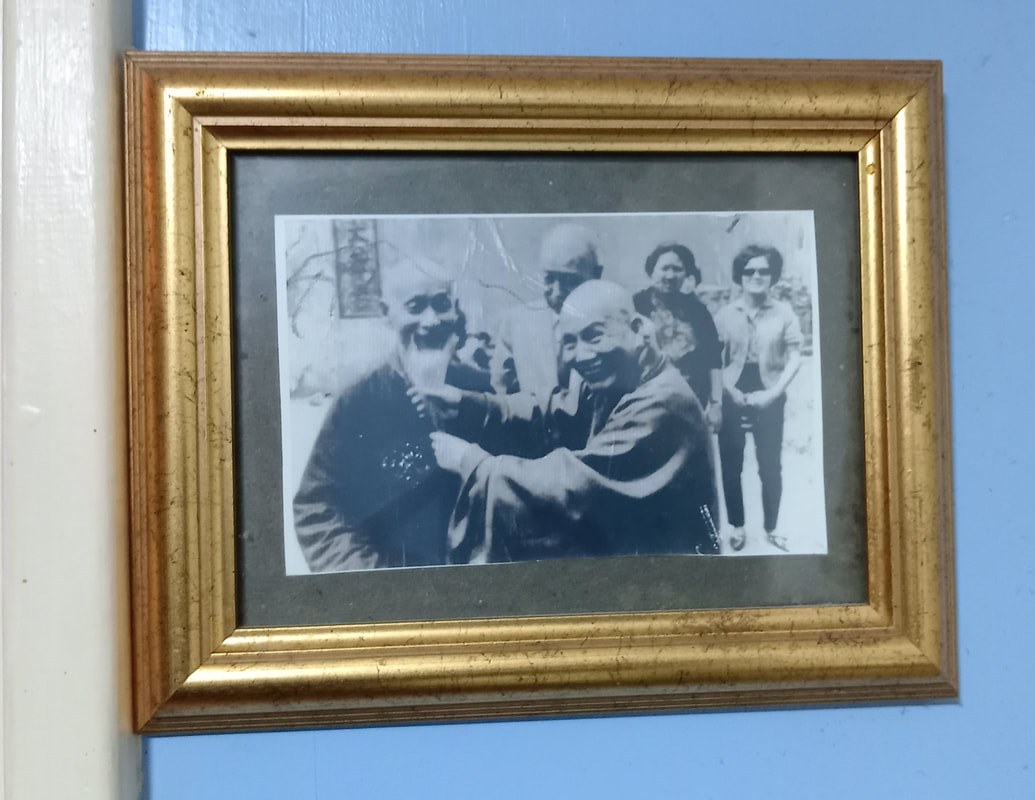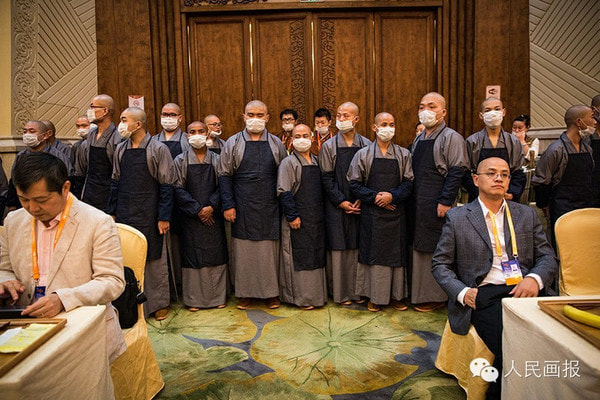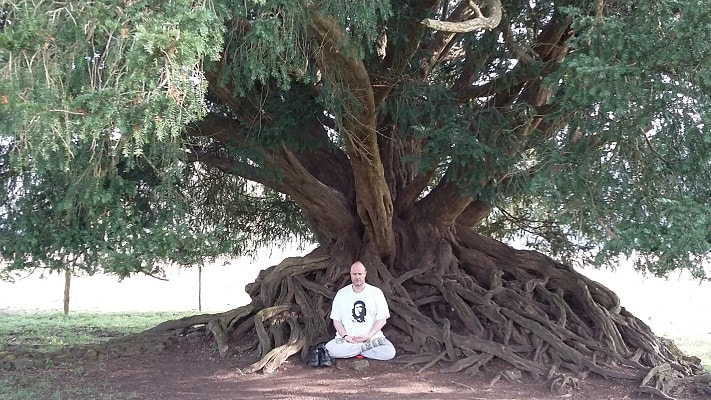|
Buddhist monasticism is flexible. Although it is correct to assume that it is usually necessary for an individual to undergo a period of isolatory training (to establish and stabilise the realisation of the void) - it is also true that compassionate (Bodhisattva) activity must also be pursued throughout the myriad conditions that define worldly existence. This is true of all Buddhist traditions - as even the Bhikkhus of the Theravada School must "walk" (in a self-aware manner) through the surrounding (lay) villages - begging for food on a daily basis. Living a hermitic or cloistered existence is a means to an end and not an end in itself. Of course, this period may be repeated more than once and last any length of time. When entering different situations - the Bodhisattva does not lose sight of the realised void regardless of the external conditions experienced. The Sixth Patriarch (Hui Neng) spent around 15 years living with bandits and barbarians in the hills - retaining a vegetarian diet - even though he was not yet formally ordained in the Sangha. Within China, the Mahayana Bhikshu must take the hundreds of Vinaya Discipline Vows as well as the parallel Bodhisattva Vows (the former requires complete celibacy whilst the latter requires moral discipline but not celibacy). Anyone can be a "Bodhisattva" - whilst a formal Buddhist monastic must adhere to the discipline of the Vinaya Discipline. A lay Buddhist person also adheres to the Vinaya Discipline - but only upholds the first Five, Eight or Ten vows, etc. Vimalakirti is an example of an Enlightened Layperson whose wisdom was complete and superior to those who were still wrapped in robes and sat at the foot of a tree. In the Mahasiddhi stories preserved within the Tanrayana tradition - the realisation of the empty mind ground (or all-embracing void) renders the dichotomy between "ordained" and "laity" redundant. The Chinese-language Vinaya Discipline contains a clause which allows, under certain conditions, for an individual to self-perform an "Emergency" ordination. This is the case if the individual lives in isolation and has no access to the ordained Sangha or any other Buddhist Masters, etc. The idea is that should such expertise become available - then the ordination should be made official. However, the Vinaya Disciple in China states that a member of the ordained Sangha is defined in two-ways: 1) An individual who has taken both the Vinaya and Bodhisattva Vows - and has successfully completed all the required training therein. 2) Anyone who has realised "emptiness". Of course, in China all Buddhists - whether lay or ordained - are members of the (general) Sangha. The (general) Sangha, however, is led by the "ordained" Sangha. As lay-people (men, women, and children) can realise "emptiness" (enlightenment) - such an acommplished individual transitions (regardless of circustance) into the "ordained" Sangha. This is true even if such a person has never taken the Vinaya or Bodhisattva Vows - regardless of their lifestyle or position within society. Such an individual can be given a special permission to wear a robe in their daily lives - but these individuals do not have to agree with this. Realising "emptiness" is the key to this transformative process. Emptiness can be realised during seated meditation, during physical labour (or exercise), or during an enlightened dialogue with a Master. The first level is the "emptiness" realised when the mind is first "stilled". This "emptiness" is limited to just the interior of the head - but the ridge-pole of habitual ignorance has been permanently broken (this is the enlightenment of the Hinayana) - and is accompanied by a sense of tranquillity and bliss. This situstion (sat atop the hundred-foot pole) must be left behind. Through further training, the "bottom drops out the barrel" - and the perception of the mind expands throughout the ten directions. Emptiness embraces the mind, body, the surrounding environment - and all things within it.
0 Comments
Dear B As far as I am aware, Master Xu Yun had studied the Yijing as a child (and youth) under the strict supervision of the numerous tutors that his (Scholar-Official) father traversed through the household. This was in preparation for Xu Yun to take the 'Scholar-Official' Government Examination - which required the rote learning of the Four Books and the Five Classics - and the meticulous replication (word for word) of required sections of each text. A good Scholar-Official must demonstrate how he would deal with each real-world incident by referring to a precise and exact extract of whichever divine-text was relevant to the situation. There could be NO deviation from this ancient (and 'perfect') process if a candidate was to be successful. Remember, tens of thousands applied - and only the low-hundreds would be 'Passed' - according to governmental needs (which meant thousands who had 'Passed' would be 'Failed' as no posts existed for them to be allocated toward). On paper (and in public), Master Xu Yun always distanced himself from Confucian and Daoist Texts (the Yijing in China is considered a 'Confucian' Text). This is to be expected from a man who betrayed the will of his father and instead embraced the Path (Dharma) of the Buddha - a religion that even today is considered 'foreign' in China. To be successful on this path - Xu Yun had to completely abandon what appeared to be the worldly path as defined by Chinese convention. Therefore, the (Indian) Vinaya Discipline took the place of the Four Books and the Five Classics. If this was the cae, then why did Xu Yun (privately) advise Charles Luk to study the Yijing and integrate it with the Ch'an Path? In the UK - Richard Hunn (my primary teacher) was considered the most prominent 'Master' of the Yijing - as he could read the original (and ancient) Chinese ideograms and even lectured about this Text to ethnic Chinese students attending University in Great Britain in Putonghua! For our Ch'an (Caodong) Lineage (Master Xu Yun inherited and transmitted all Five Houses of Ch'an - but in his private transmission he only favoured the 'Caodong') - the Yijing is a pivotal and yet 'hidden' Text. Remember, the Caodong Masters were also experts in the study of the Yijing - and they used trigrams and hexagrams to devise the Five Ranks System. Xu Yun was the opinion that it is only through the study of the Yijing that the Caodong methodology can be truly understood. In this regard, John Blofeld was never privy to this advanced knowledge. If he met Xu Yun - it was merely for a few minutes where Blofeld (by his own admission) spouted nonsense. Of Course, I salute your efforts and you must never be afraid (as I know you are not) to pull the whiskers of the tiger! With Metta Adrian
The hermit of Lotus Flower Peak held up his staff and showed it to the assembly saying, “When the ancients got here, why didn’t they consent to stay here?” There was no answer from the assembly, so he himself answered for them, “Because they did not gam strength on the road.” Again he said, “In the end, how is it?” And again he himself answered in their place, “With my staff across my shoulder, I pay no heed to people – I go straight into the myriad peaks.” Blue Cliff Record – Case 25 A Ch’an Week Retreat is an intensive period of focused seated meditation, that extends over a clearly defined time-period. This is a tradition within the Chinese Ch’an School that involves the monastic and lay community practicing together without any distinction. All sit together, and all follow the full Vinaya Discipline for the duration of the Retreat. If a Ch’an practitioner sits properly, (as observed by the Japanese Zen Master – Dogen), then the ‘Mind Precept’ is established. The Mind Precept is a ‘still’ mind (relative enlightenment) that has uprooted all vestiges of greed, hatred and delusion, and which has expanded to include the entire environment (full enlightenment). In this pristine state, all material things arise and pass-away within an all-embracing (and reflective) void. It is an emptiness that contains all things, and which is devoid of any and all delusive thinking premised upon habitual dualism. This bright and still mind manifests boundless wisdom (prajna), compassion (karuna) and loving-kindness (maitri), and is the basis of every rule - not only within the Vinaya Discipline - but also the Bodhisattva Vows. By adopting a clear state of mind and a disciplined mode of bodily behaviour, the Ch’an practitioner generates the conditions to a) realise enlightenment, and b) deepen an already experienced enlightening experience. Those who enter a Ch’an Week Retreat who are already fully enlightened, offer a great Bodhisattva service to humanity (and the universe), as their presence ‘purifies’ the fabric of existence, and generates ‘strength’ for all those still struggling on the Path! Master Xu Yun (1840-1959) always taught that there is no point forcibly adhering to the Vinaya Discipline if the mind of the practitioner is full of confusion (klesa) - and lacks a clarity of insight into the state of ‘stillness’. From a karmic perspective, if a mind is infected with dualistic desire, then negative karma will carry-on being produced (premised upon ‘volitional’ thought), regardless of the behaviour of the body. In such a situation, bodily action may well conform to the outer spirit of the Vinaya Discipline, but as the mind is impure, delusion carries-on being produced as before. This is an ‘inward’ betrayal of the spirit of the Vinaya Discipline. Monks, nuns or lay-people (who live like this), will be exposed sooner or later. Eventually, the sheer weight of this contradiction will eventually lead to an outer abhorrent behaviour that matches the corrupt state of the inner mind. This is why the mind must be ‘cleaned’ through the use of the hua-tou and the gong-an methods. Sitting in disciplined meditation for an extended period of time is an excellent method to begin this training, and to deepen this training once experience has been gained and progress made. Although the mind is impermanent, as declared by the Buddha, it is important that all greed, hatred and delusion is uprooted from its functioning, and that the empty mind ground is penetrated and clearly understood.
|
Archives
March 2024
Categories
All
|




 RSS Feed
RSS Feed